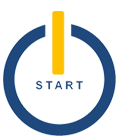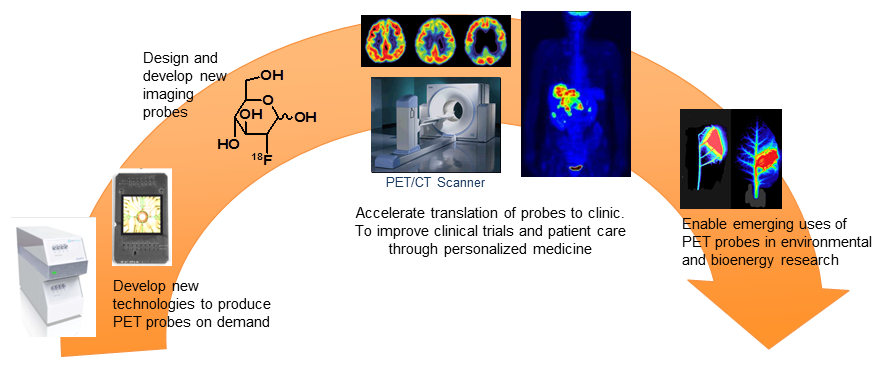


The Crump START (Scholars Trained in Advanced Radiochemistry Technologies) Program is designed to transition exceptional scholars into the exciting fields of radiochemistry and molecular imaging. Molecular imaging with positron emission tomography (PET) is a powerful and sensitive way to observe biological and biochemical processes in vivo and is the leading method to diagnose many cancers and neurodegenerative diseases as well as monitor response of patients to treatment. Increasingly, PET will be used in personalized medicine to match the right patient to the right drug in clinical trials and ultimately in clinical care.
There are tremendous opportunities for experts capable of developing technologies that facilitate and accelerate the discovery of new imaging probes and their translation into the clinic. For example, production of radiolabeled probes for PET currently requires expensive equipment, specialized infrastructure and probes which are primarily produced in a centralized fashion. Although this centralized approach reduces the cost of probes, it creates a bottleneck that severely limits availability of diverse probes and hinders new probe development. New technologies to enable decentralized production of probes are essential in alleviating this roadblock and bringing more diverse probes into the hands of scientists and physicians.
The START Program will train individuals at the interface of radiochemistry and engineering to address this challenge, preparing the next generation of scholars for careers in academia and industry in the areas of (1) PET radiochemistry, (2) instrumentation and technologies for radiochemistry, (3) PET tracer design and development. This will be achieved through a combination of hands-on research under the guidance of pioneering faculty members in the Crump Institute for Molecular Imaging and the Department of Molecular and Medical Pharmacology at UCLA, in combination with specialized courses and seminars. Trainees will develop innovative technologies for radiochemistry that can be applied to clinically relevant problems. Scholars receive competitive salary support and funds for travel to international meetings for the duration of the program (2-3 years).